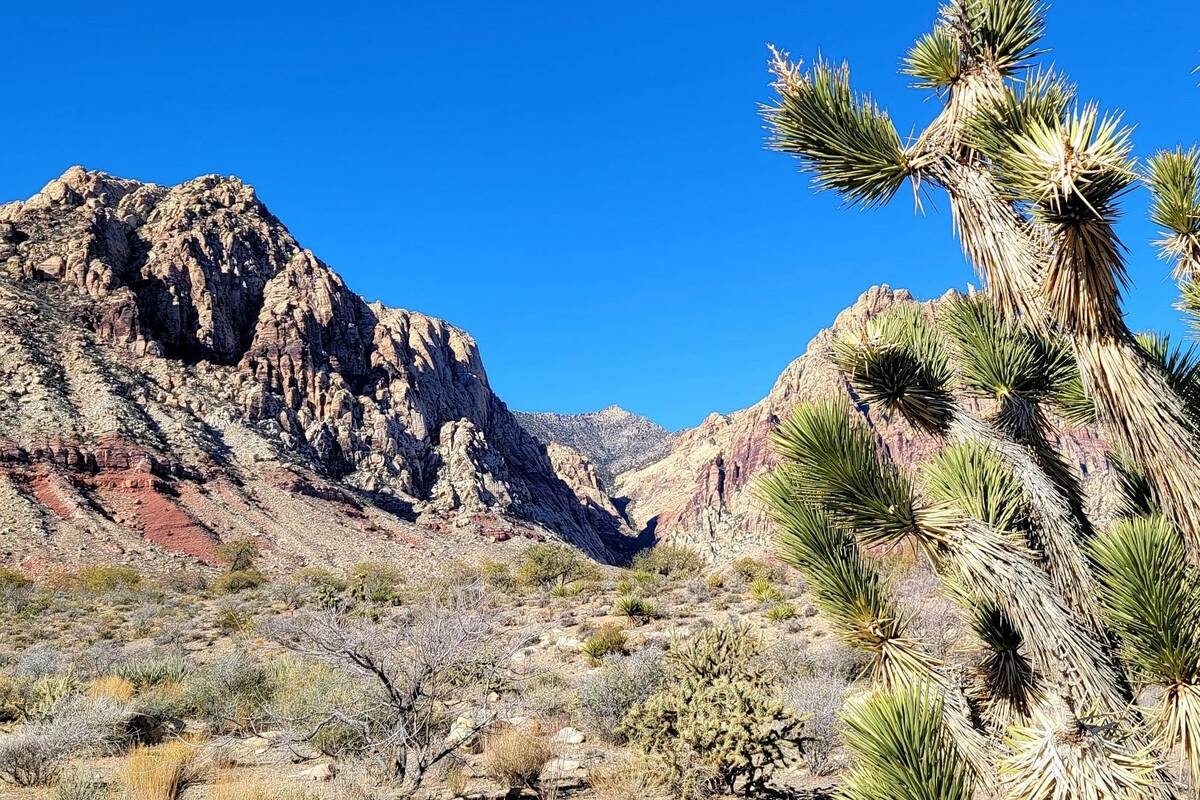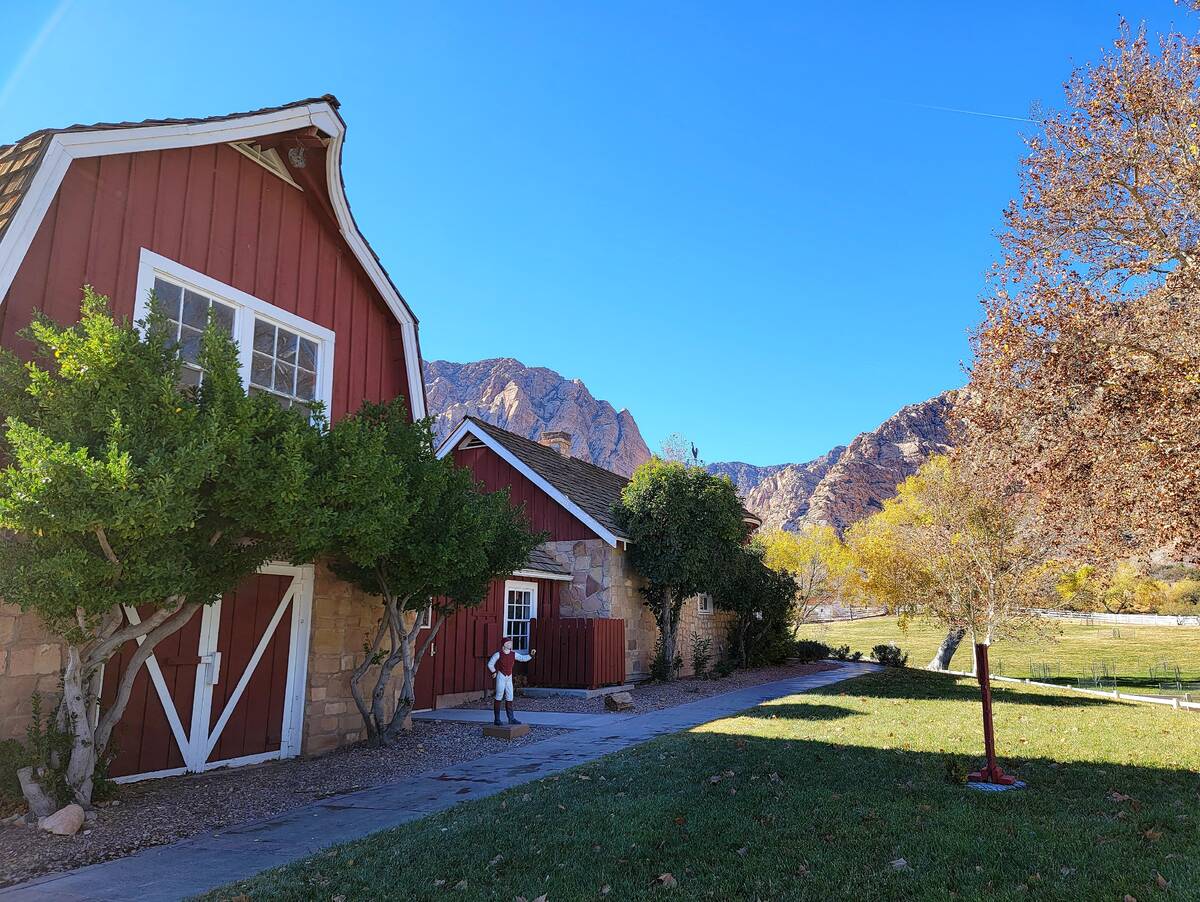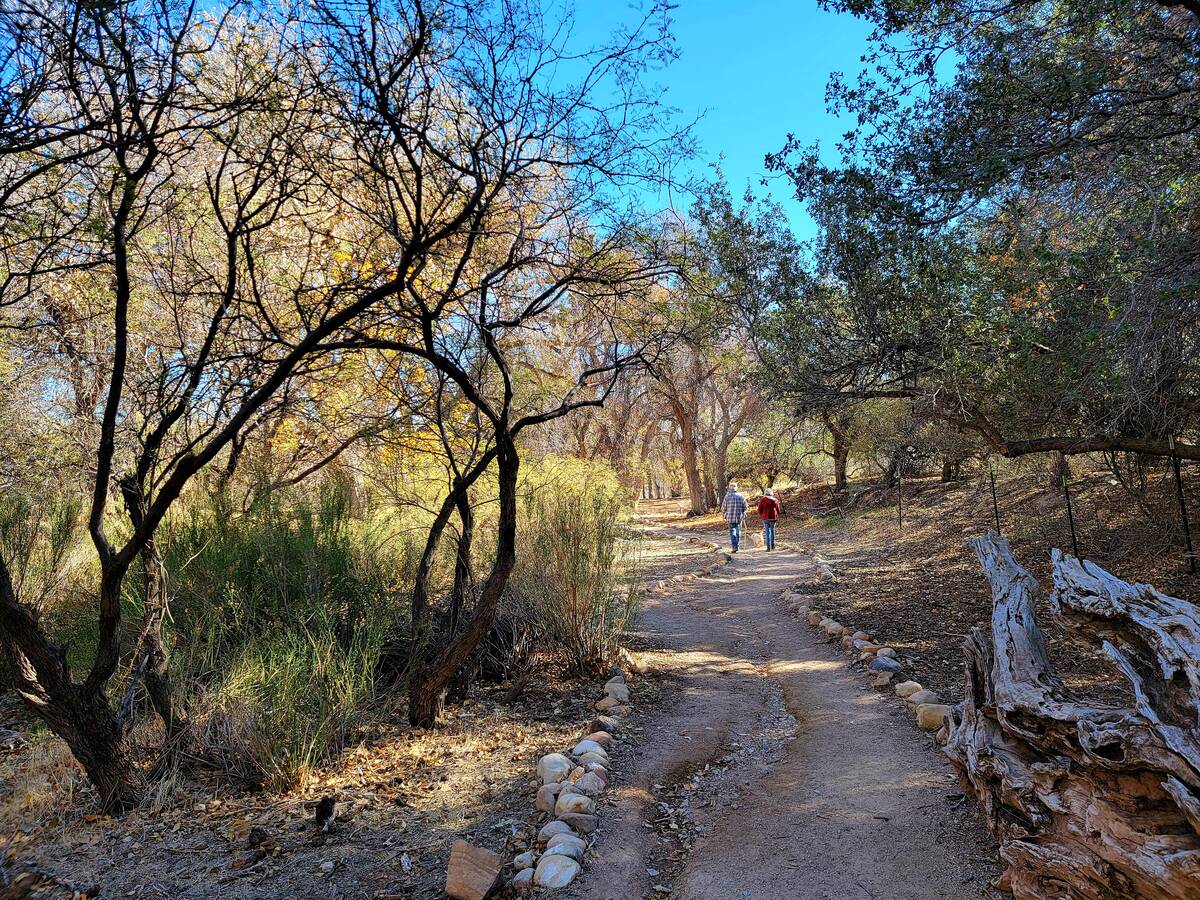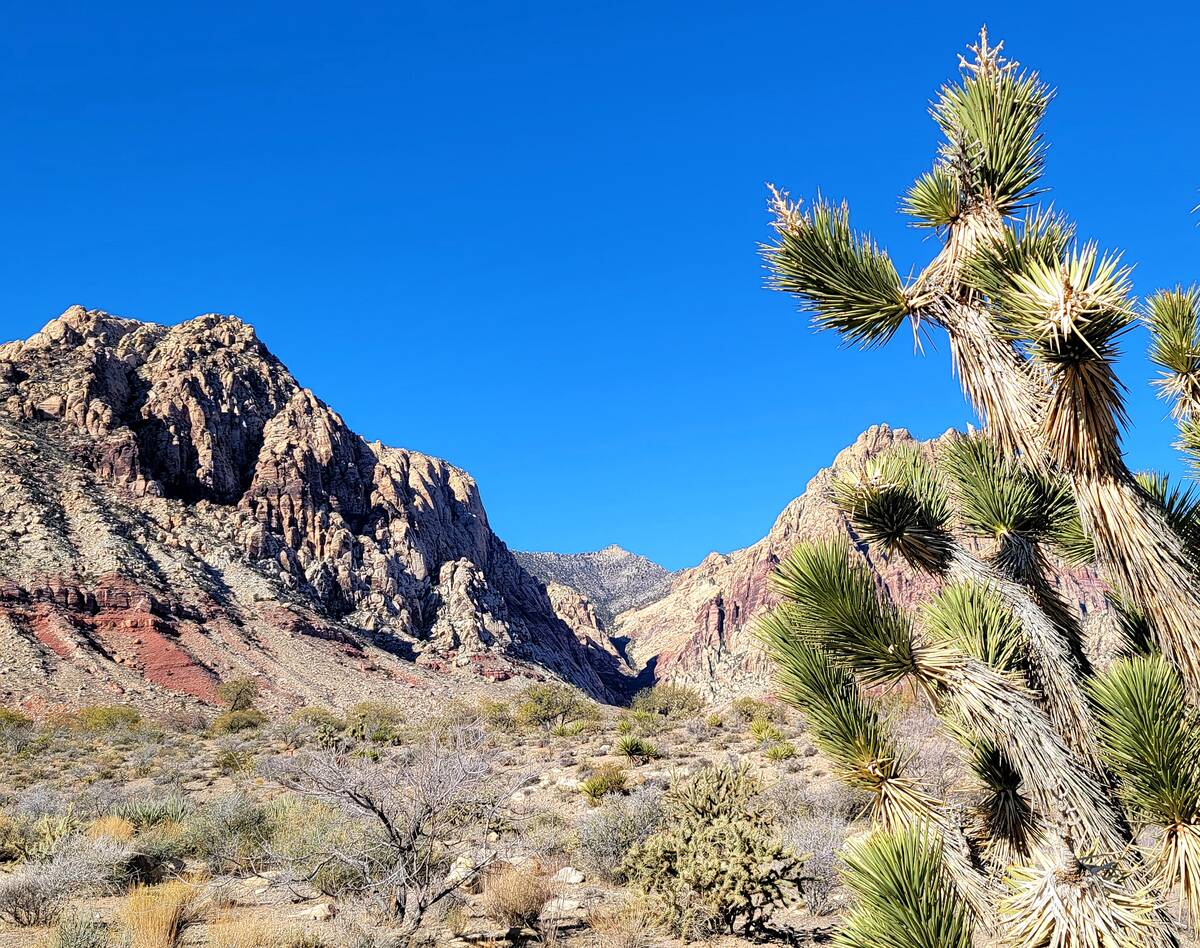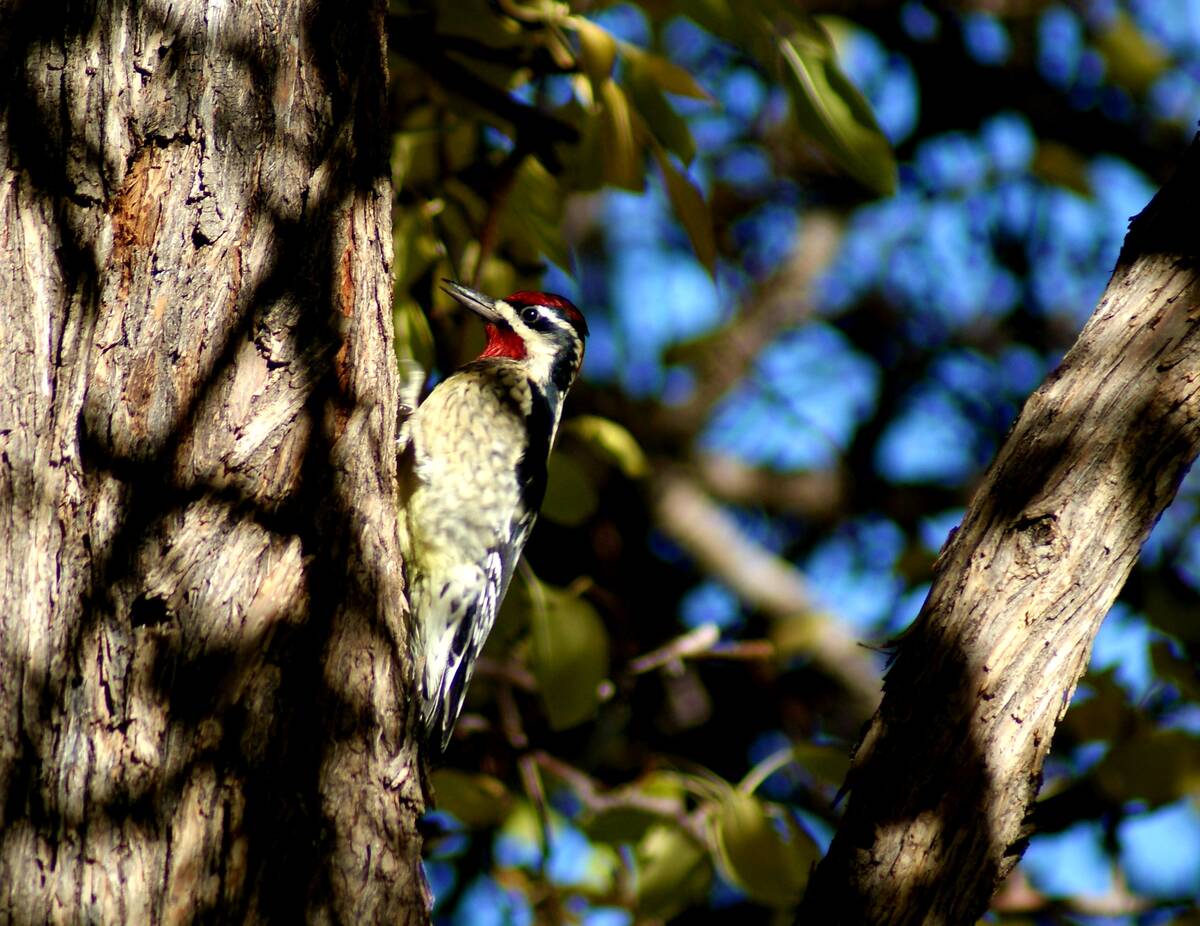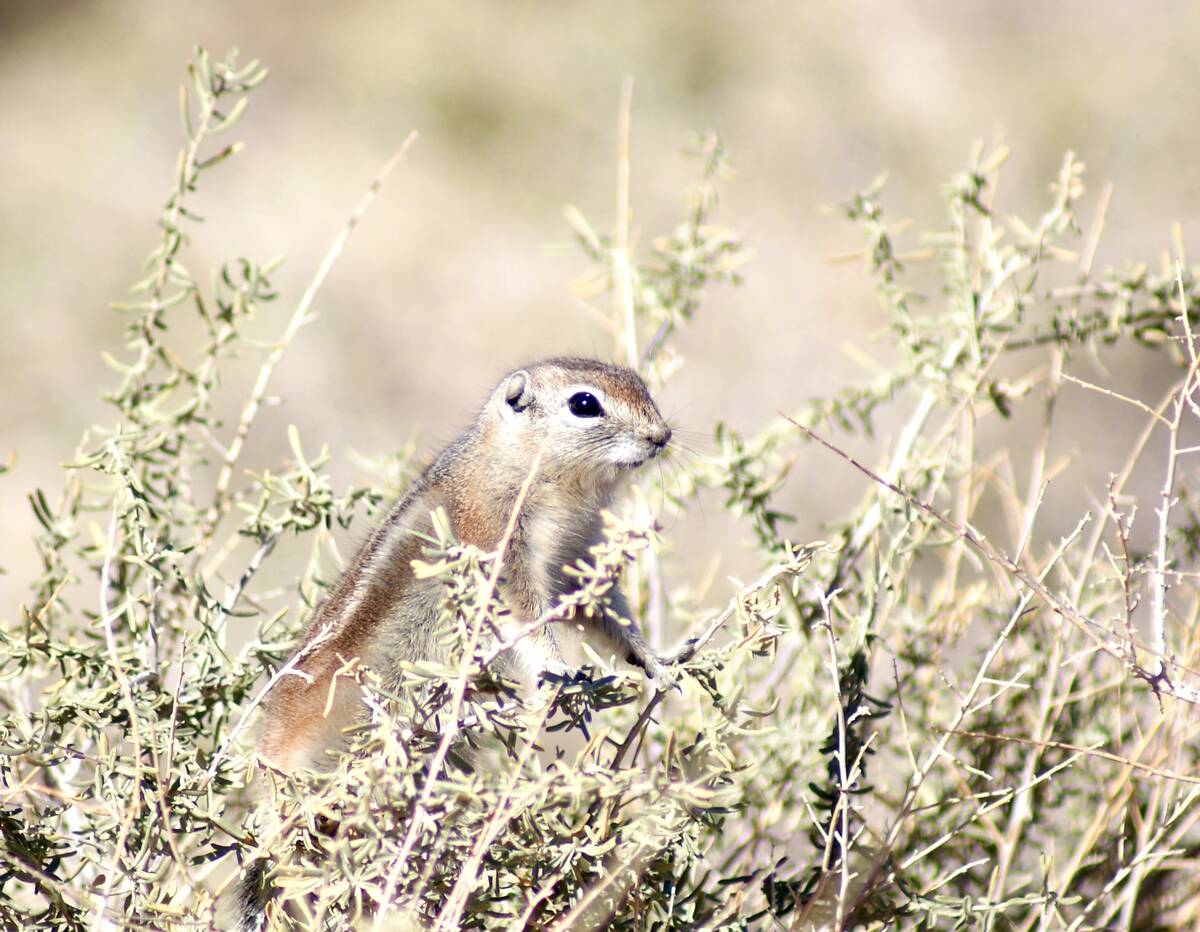History, nature draws visitors to tranquil Spring Mountain Ranch State Park
A little bit history, a little bit picnic, a little bit nature ’n’ stroll. Spring Mountain Ranch State Park offers much to many in Southern Nevada.
With piled-up and pressed-together layers, slabs and chunks of red and tan rock, the Spring Mountains of Red Rock National Conservation Area provide a stunning backdrop for this park, located between Blue Diamond and the 13-mile Red Rock loop along state Route 159. The park can be reached by Charleston Boulevard or Blue Diamond Road and takes no more than 45 minutes to access from most Las Vegas-area homes. Still, Spring Mountain Ranch seems always to be an energizing escape.
Hiking trails lead visitors through an old grove of ash trees, into scenic Sandstone Canyon and up to an overlook of a ranch where hundreds of cattle once grazed but now works mainly to preserve the 520-acre place and bring visitors knowledge and joy.
Spring Mountain Ranch has separate lush, green fields for its three resident cows, dozens of daily picnickers (kite flyers on windy days, too) and hundreds of outdoor Super Summer Theatre goers.
Painted in barn red and trimmed in white, the handsome New England-style main ranch house is headquarters for the fascinating history of a place that included Native Americans as first settlers thousands of years ago and rich-and-famous owners in the 20th century. The park’s volunteer docents tell stories of the past and answer questions about all matters Spring Mountain Ranch while stationed inside the furnished-like-the-1950s main house, where a self-guided tour is an option.
The past
Several original structures endure as symbols of the park’s history, including a blacksmith shop and a sandstone cabin from 1864, as well as barns, bunkhouses, outbuildings, a chicken coop and a shed where chinchillas were kept. But archeological evidence suggests man connected to this desert oasis as far back as 10,000 years ago. The mountain springs that continue feeding the desert riparian area today were a life source for hundreds of years to the Southern Paiute.
The 1800s saw explorers and trappers among the first non-native visitors, who camped out in the area to explore and to rest their pack animals and themselves near a reliable water source and under the shade trees, a rarity in the Mojave Desert.
Spring Mountain Ranch was marked on vintage maps in the 1840s as the Old Williams Ranch, after an alleged California horse thief. In 1876, Sgt. James Wilson and partner George Anderson developed the site as a cattle ranch. Other work during their tenure included raising sheep and prospecting for minerals. A California furrier rescued the financially struggling ranch in 1929 and expanded its operations until the ranch was sold in 1948.
From there, the ranch’s history became more Hollywood than hard-scrabble. The list of famous owners included Chet Lauck of the radio comedy team “Lum and Abner”; the German actress Vera Krupp, whose husband got rich manufacturing munitions; and oil-drilling toolmaker and real-estate tycoon Howard Hughes, who probably never visited Spring Mountain Ranch.
In 1972, car dealership owner Fletcher Jones and business partner William Murphy bought the ranch for $1.5 million. They hatched plans for a large equestrian-themed development that would house up to 2,000 people. After a public outcry, the property was purchased by the state of Nevada and turned into the park in 1973.
The nature
One of Spring Mountain Ranch’s greatest gifts is the shade of its welcoming pasture, lined with picnic tables. It’s a popular spot for families to gather for an al fresco meal and to toss a Frisbee or football. Surrounding sandstone cliffs and the ranch’s charming buildings are in constant view.
A couple of trails beckon those ready to get their shoes dusty and learn about the park’s flora and fauna. At the start of the ash grove and just steps away from the main ranch house is a map showing the available paths. That’s also the start of the South and North Ash Grove loop trails (about 1 1/2 miles total).
The Ash Grove trails begin in the shade, but soon the south trail is exposed to the desert sun as it parallels Sandstone Canyon wash. Cholla, paddle and hedgehog cactus line the trail, and Joshua trees dot the landscape.
After crossing the wash, hikers arrive in a riparian area where water may be visible or could be hidden just below the surface. Wild burros and mule deer rely on this desert oasis for survival. Stepping stones replace the dirt path for a short time through this shaded area, and bold rust hues of yerba mansa plants line the way in winter (turning green with white flowers in spring).
Information panels about the park’s plants and animals are part of the Spring Mountain Ranch experience as the dusty path continues winding through the protected old ash grove. Antelope ground squirrels may be seen, Gambel’s quail heard and red-naped sapsuckers spotted during their regular winter stopovers.
On the opposite side of the ranch and toward the towering cliffs, the Sandstone Canyon and Overlook loops are a second pair of trails (about 1.7 miles total). Hikers follow along white fencing and past old farm equipment to find a sign pointing the way to the Lake Harriet overlook and Sandstone Canyon loop. The lake itself will be visible but inaccessible because of fencing that’s part of protective efforts for the Pahrump poolfish, which was listed under the Endangered Species Act in 1973.
The sweeping views from Sandstone Canyon loop give visitors the perspective needed to appreciate the total package of history, natural resources and tranquility that is Spring Mountain Ranch State Park.
If you go
Park gates open at 8 a.m., and visitors need to leave the park by 4:30 p.m., when daylight fades. The cost to get in is $10 per vehicle ($15 for non-Nevadans). Programming at Spring Mountain Ranch State Park includes guided daily tours, weekend yoga classes, ranger-led walks, living history events and astronomy nights. The main ranch house is typically open from 10 a.m. to 4 p.m. Updated program offerings are posted on the park’s social media accounts, and general information is available by calling the park at 702-875-4141 or checking the website parks.nv.gov/parks/spring-mountain-ranch.



